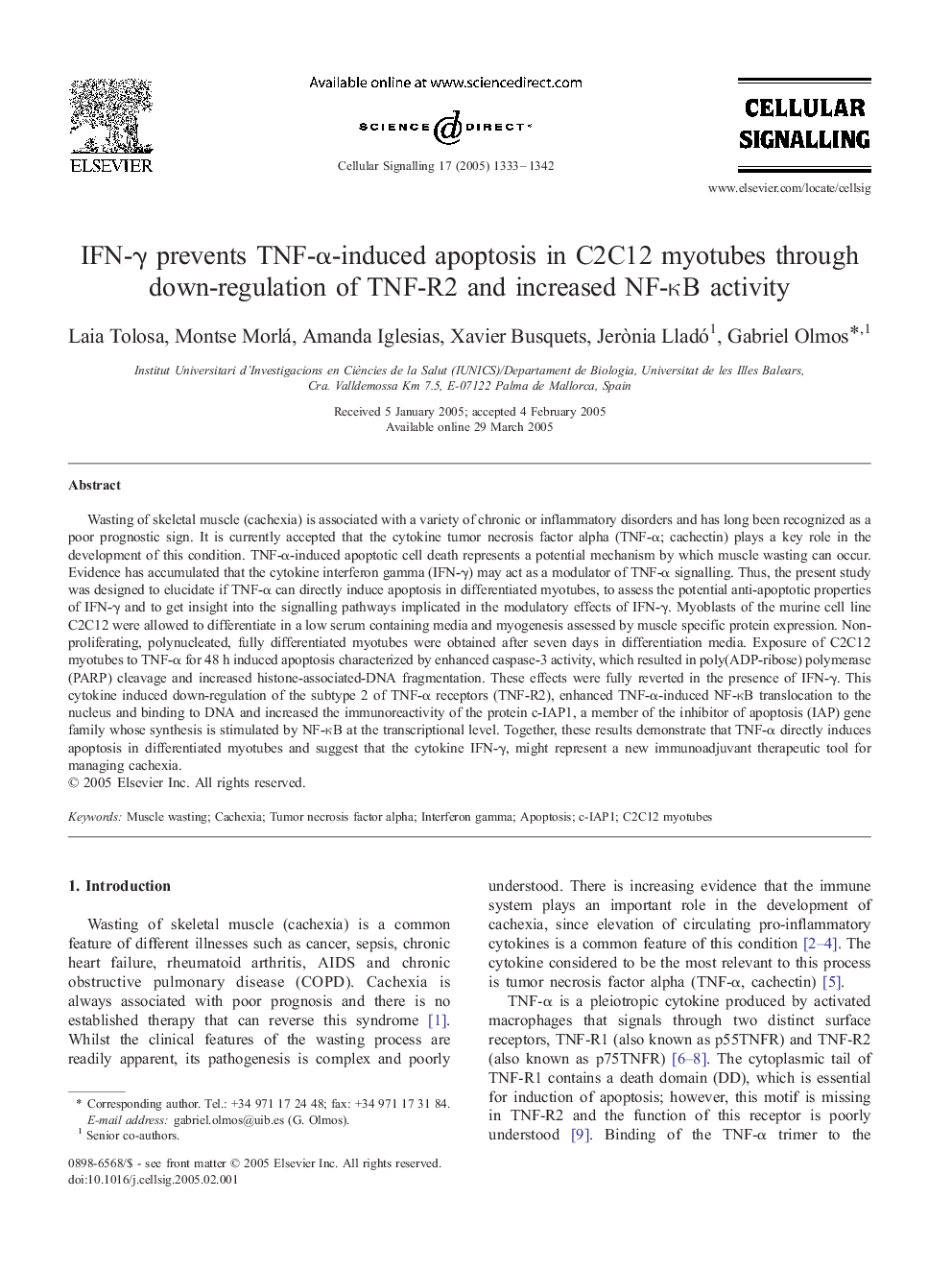| Article ID | Journal | Published Year | Pages | File Type |
|---|---|---|---|---|
| 10816337 | Cellular Signalling | 2005 | 10 Pages |
Abstract
Wasting of skeletal muscle (cachexia) is associated with a variety of chronic or inflammatory disorders and has long been recognized as a poor prognostic sign. It is currently accepted that the cytokine tumor necrosis factor alpha (TNF-α; cachectin) plays a key role in the development of this condition. TNF-α-induced apoptotic cell death represents a potential mechanism by which muscle wasting can occur. Evidence has accumulated that the cytokine interferon gamma (IFN-γ) may act as a modulator of TNF-α signalling. Thus, the present study was designed to elucidate if TNF-α can directly induce apoptosis in differentiated myotubes, to assess the potential anti-apoptotic properties of IFN-γ and to get insight into the signalling pathways implicated in the modulatory effects of IFN-γ. Myoblasts of the murine cell line C2C12 were allowed to differentiate in a low serum containing media and myogenesis assessed by muscle specific protein expression. Non-proliferating, polynucleated, fully differentiated myotubes were obtained after seven days in differentiation media. Exposure of C2C12 myotubes to TNF-α for 48 h induced apoptosis characterized by enhanced caspase-3 activity, which resulted in poly(ADP-ribose) polymerase (PARP) cleavage and increased histone-associated-DNA fragmentation. These effects were fully reverted in the presence of IFN-γ. This cytokine induced down-regulation of the subtype 2 of TNF-α receptors (TNF-R2), enhanced TNF-α-induced NF-κB translocation to the nucleus and binding to DNA and increased the immunoreactivity of the protein c-IAP1, a member of the inhibitor of apoptosis (IAP) gene family whose synthesis is stimulated by NF-κB at the transcriptional level. Together, these results demonstrate that TNF-α directly induces apoptosis in differentiated myotubes and suggest that the cytokine IFN-γ, might represent a new immunoadjuvant therapeutic tool for managing cachexia.
Keywords
Related Topics
Life Sciences
Biochemistry, Genetics and Molecular Biology
Biochemistry
Authors
Laia Tolosa, Montse Morlá, Amanda Iglesias, Xavier Busquets, Jerònia Lladó, Gabriel Olmos,
